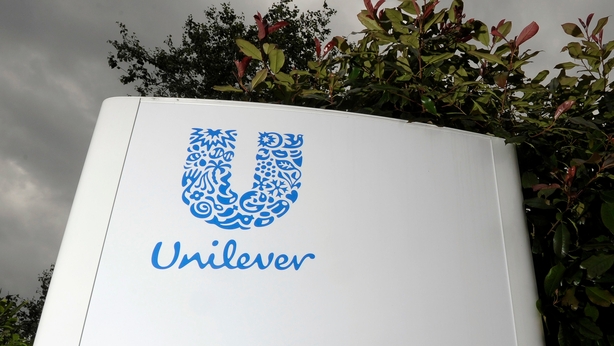Shareholders of Unilever in the Netherlands are expected to back plans to unify the consumer goods giant under a single parent company based in London and end 90 years as an Anglo-Dutch hybrid.
The result of an online vote will be released on Monday during an extraordinary shareholders' meeting streamed online due to the coronavirus.
Investors in British Unilever are due to vote on October 12. If approved by both sides, Unilever hopes to unify on November 22.
The maker of Dove soap, Surf detergent and Ben & Jerry's ice cream has argued that the dual national structure hampers its ability to conduct acquisitions and disposals quickly, such as the planned sale of its €3 billion tea business.
Unilever began its push to restructure under previous management after a failed $143 billion takeover approach by Kraft Heinz in February 2017.
Tax and political considerations thwarted its first attempt to unify in Rotterdam in 2018, with concerns about a 15% Dutch dividend withholding tax and forced selling by some UK shareholders once Unilever was dropped from London's FTSE 100 index.
Now, Britain's departure from the European Union gives some extra urgency, as a delay beyond this year could mean that the marriage of the company's two arms could face additional scrutiny from EU and British regulators as a cross-border merger.
Glass Lewis, an independent share advisory group, has recommended voting for unification.

The British government has also cheered the plan. Dutch politicians are less enthusiastic.
In 2018, Prime Minister Mark Rutte tried unsuccessfully to scrap the 15% tax on dividends. The cut was intended to keep Unilever and Royal Dutch Shell in the Netherlands, but became seen as a gift to rich foreign investors.
Dutch politicians also do not want their country missing out on collecting some €300m annual tax from Unilever, leading an opposition party to propose an "Exit Tax".
Unilever says that idea violates European law, but if enacted as proposed, it would cost the company €11 billion - enough to derail unification once again.
Analysts said that if the plan does not happen, the last 100 years or so suggests that Unilever will continue to thrive, all around the globe.

